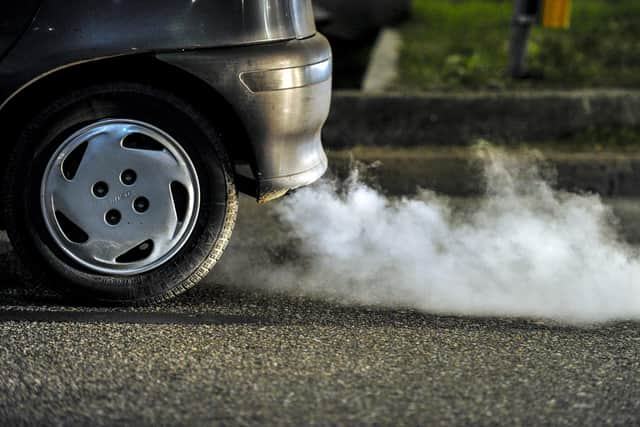This Glasgow street is one of the most polluted in Scotland, according to Friends of the Earth Scotland
and live on Freeview channel 276
Research from the environmental group shows that Scotland breached legal air quality limits in 2021, after a historic low in 2020 - in part down to the lockdown.
Many streets across Scotland saw spikes in pollution levels after lockdown restrictions were eased and some people returned to the workplace.


But one Glasgow street in particular topped the list.
What Glasgow street is the most polluted?
Advertisement
Hide AdAdvertisement
Hide AdAccording to the data, Hope Street - which runs from Glasgow Central train station to the Theatre Royal - was the worst in Scotland in 2021 for nitrogen dioxide.
It also recorded an annual average above the legal limit for diesel pollution.
On the list of the most polluted streets for particles - which includes rubber from tyres, dust from road surfaces and soot from engines - Hope Street came fourth.
What did Friends of the Earth Scotland say about this?
Friends of the Earth Scotland’s transport campaigner, Gavin Thomson, said: “Scotland once again has illegal air quality in 2021, which is shocking but not surprising given the lack of political action on the issue. 2020 was an outlier for obvious reasons and we witnessed unprecedented changes to all areas of public life. But for traffic emissions, it was back to business as usual in 2021. From the evidence we have, virtually every street in Scotland experienced higher levels of pollution in 2021 than the previous year.
Advertisement
Hide AdAdvertisement
Hide Ad“Air pollution from transport is responsible for thousands of premature deaths in Scotland every year, and causes serious heart and lung issues. The growing evidence base showing the links between air pollution and vulnerability to Covid-19 is only the latest reason why we have to act to protect public health.
“The Low Emission Zones being introduced will not restrict private cars until summer 2024. Meanwhile, with pollution spiking in Perth, we should be asking why only four cities in Scotland are introducing LEZs.
“The temporary improvements in air quality in 2020 arrived at an enormous cost to our communities and societies. There was no intention or concerted political action to reduce emissions, which is why the falls were not maintained when restriction eased. We need a just transition for transport, including taking control of our public transport to run comprehensive services that serve passengers not profit, and more options for safe walking and cycling, to improve the air we breathe permanently.”
Comment Guidelines
National World encourages reader discussion on our stories. User feedback, insights and back-and-forth exchanges add a rich layer of context to reporting. Please review our Community Guidelines before commenting.
